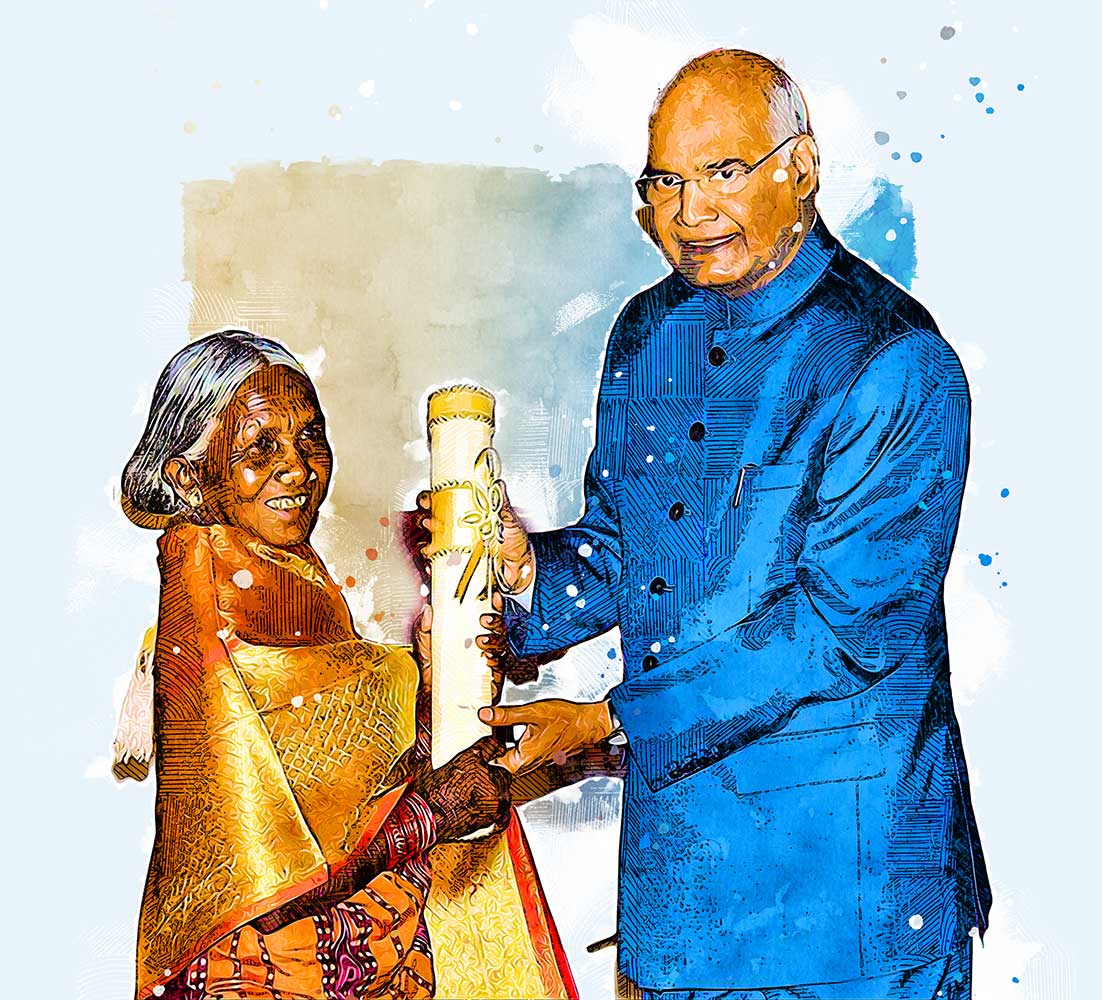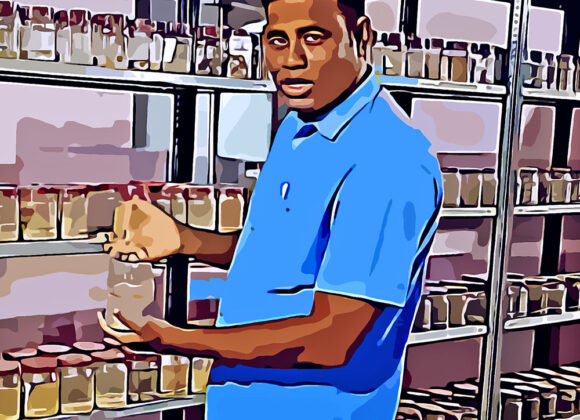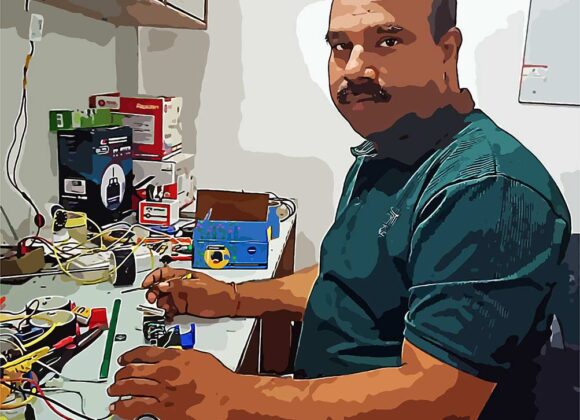Lead a life that will serve as an inspiration to future generations. One such individual among many is Kamala Pujari.
Kamala Maa’s consistent advocacy for organic farming inspired many fellow farmers to turn down the use of chemicals in their farm fields. She lived a riveting 73 years, during which she protected more than 100 native paddy seeds and many more rare varieties. In 2004, the Odisha government named her the state’s “Best Woman Farmer” in recognition of her efforts. Although Padmashri recipient Kamala Pujari is no longer among us, her incredible contributions to the agro-sector serve as a source of unwavering inspiration for all of us.
Kamala Maa comes from Patraput, a tribal village close to Boipariguda, Koraput district. She was born in the year 1947 at Kandkiguda village, Boipariguda, Koraput district. His father’s name was Ram Kandki. Kamala, a part of the Paraja Tribal group, has always been fascinated to traditional farming practices. Her tribe has a strong cultural connection to agriculture because it is their primary and traditional source of income. From the MS Swaminathan Research Foundation in Jeypore, Odisha, she learned the fundamentals of organic farming and how to preserve seeds.
“The depletion of indigenous paddy varieties in the Koraput region prompted us to launch an exploration and conservation initiative for paddy seeds in the Jeypore region. During the research, we were surprised to see how Kamala Maa, a widowed tribal woman, stepped in to assist us with seed collection, learning about seed properties, and sensitizing tribal people about the importance of conserving indigenous seeds and the benefits of organic farming over chemical farming. She proved that with immense willpower, it is not difficult for an illiterate to achieve anything, and that people’s mindsets can be changed.”, Dr. Kartik Lenka, Scientist, MSSRF
The MS Swaminathan Foundation also helped Kamala construct a seed bank, where she kept over a hundred species of indigenous seeds having herbal properties for future use. After joining the ‘Panchavati Graamya Unnayana Samiti’ later on, she was continually educating farmers in Patraput village and surrounding villages in Nabarangpur district about the negative consequences of chemical-based farming and the benefits of local seed preservation.
This led her to Johannesburg, South Africa, in 2002, where she received the Equator of Initiative Award for her focused efforts in seed grading, raising awareness among folks about the preservation of local paddy seeds, and encouraging organic farming in the region. Participants from all across the world applauded her efforts.
However, her contributions to organic farming have been acknowledged countless times thereafter. Kamala Maa received the national award “Krusi Bisarada Samman” at New Delhi. The OUAT acknowledged her exceptional efforts in Koraput’s tribal belt, naming one of its hostels after her. In 2018, she became the first tribal woman appointed to the Odisha State Planning Board.
Despite this, her lifelong efforts were recognized in 2019 when she received the Padma Shri, India’s fourth highest civilian award, from then-President Ramnath Kovind.
“Kamala Maa was a down-to-earth personality who was always concerned about the well-being of her people. She has always advocated for the wider use of organic farming as a means of preserving locally available indigenous paddy seeds. If the state government adopts an integrated approach or specialized plan to encourage local farmers in this direction, such as offering organic farming schemes, distributing organic manures at subsidized rates, and promoting research activities in this field so that people become more aware of it, it would be a real tribute to Kamala Maa.” – Chelapila Santakar, Journalist and Social Activist
Kamala Pujari lived a remarkable life that benefited numerous farmers and agricultural researchers. Despite being from a remote tribal background, her knowledge of organic farming and seed qualities is both breathtaking and exceptional. Although her life encouraged many to become seed preservers and agriculturists who carry on her legacy, her death is a shared loss for all of us.





